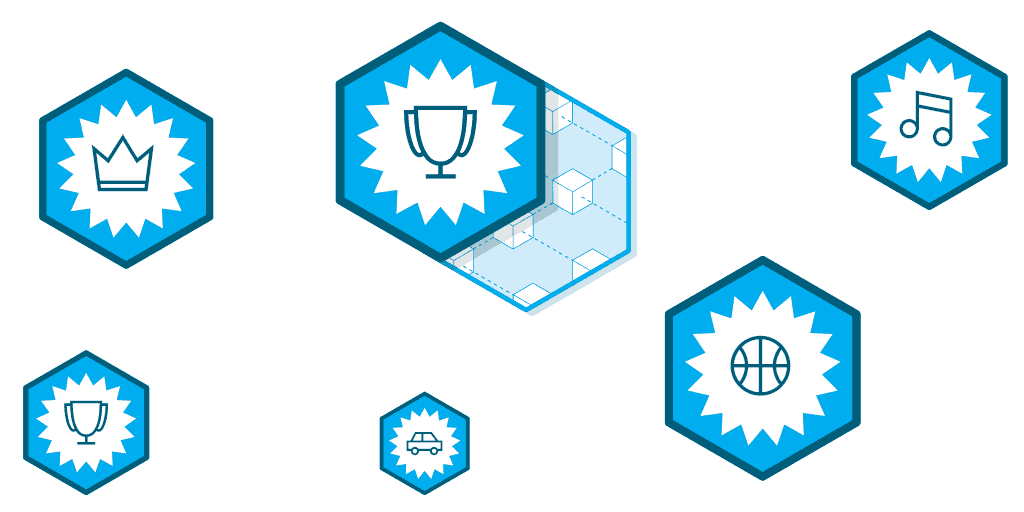Teleworking, videoconferencing courses and remote learning all have become a major part of our daily lives. All aspects of society have had to adapt and many believe these changes are here to stay. Allowing for more flexibility and less commuting, these new habits have been quickly adopted by workers and learners all around the world.
In this context, and with the development of online training courses such as MOOCs, Open Badges are on the rise. An Open Badge is a digital system that enables the certification of skills or knowledge acquired informally, which cannot be certified by a traditional diploma. BCdiploma takes a closer look at what Open Badges will change for education, businesses and society as a whole.
Open Badge: A digital tool for skills recognition
What are Open Badges for?
In 2011, the Mozilla Foundation and the MacArthur Foundation created the first Open Badges in the United States as a free and open specification. The goal was to help people of all ages, especially the most disadvantaged and those without qualifications, enhance their informal skills and thus gain access to better career opportunities.
Today, Open Badges have been adopted all over the world and are issued by universities and training organisations alike to certify knowledge or skills with data that is verifiable, tamper-proof and shareable.
Indeed, the Open Badge specification describes a portable image file that contains information about a learning or achievement, evidence which its holder can display on their CV and LinkedIn profile or share directly with recruiters through a URL.
What information does an Open Badge contain?
An Open Badge contains information, or metadata, such as:
- The name of its issuer
- The name of its beneficiary
- The criteria required
- The date of attribution
- Evidence that substantiates the earning of the badge
These digital badges are represented by an image featuring an icon or logo specific to the issuing organisation.
What make Open Badges so disrupting for training?
A system suited to the future of vocational training
In-house training of employees has become a priority in the business world, and this has led to a growing demand for effective accreditation practices that respond to local challenges and unique professional needs.
Training organisations can break up their course into multiple homogeneous and coherent skill blocks required for a specific type of professional activity, which can be assessed and validated. As verifiable digital credentials, Open Badges are a great way of certifying the abilities and knowledge assimilated throughout the course, which are specific to each individual and organisation.
Flexible, personalised and secure training
The Open Badge is a major innovation that meets society’s new expectations for training:
- Flexibility: This has become the main expectation of students and employees, especially with the rise of remote learning and working. This is a major strength of Open Badges, which can be acquired through online training (taken at one’s own pace) and do not require examination to be awarded.
- Customisation: The Open Badge recognises any type of ability, knowledge, achievement or know-how. Training organisations can customise their Open Badges as much as they want, according to students’ academic path and needs. For the latter, it is a great opportunity to use the image file to personalise their CV, enhance their LinkedIn profile, stand out by highlighting specific skills, and demonstrate abilities other than those attested by a traditional diploma.
- Security: Open Badge data is 100% tamper-proof and can be subjected to verification at any time. No Open Badge can be granted without the issuer’s agreement. This specification provides all the evidence and criteria for its attribution, which demonstrates the relationship of trust between the issuer and the recipient. This is a key asset for recruiters, especially given the surge in fraud cases in recent years. With Open Badges, lying or cheating becomes impossible!
What Open Badges will change for society as a whole

Access to certification for all
Millions of Open Badges take into account the extensive diversity of knowledge, learning and skills, thus allowing diverse profiles to stand out and have their specific know-how, achievements and abilities recognised.
They can be earned by attending a training course or a conference, through a specific accomplishment, etc. You can even self-assign a badge that matches your values, such as the “eco-citizen” badge, and have it accredited by a third party.
Open Badges may very well be the key to open blockchain in education, a system where everyone has the means to learn for themselves. This would undoubtedly contribute to improving equality and underprivileged populations’ access to better professional opportunities.
Access to certification anywhere in the world
The purpose of Open Badges is to be used and shared on a global scale. This way, informal skills and learning would be universally recognised, which would facilitate training and professional mobility internationally.
Several projects have already been launched at European level to harmonise Open Badges and managing platforms. One example is the European Commission’s “European Skills, Competences, Qualifications and Occupations” (ESCO) classification project. It involves “a multilingual taxonomy of competences that can bind together professions, skills and qualifications”. Other initiatives could be set up by the European Commission in collaboration with the Open Recognition Alliance network to deploy the Open Badge standard on a European scale.
Access to certification throughout life
Because technologies and jobs are changing at an exponential rate, our skills and knowledge might quickly become obsolete. That’s why HR departments and employees are putting growing emphasis on in-house training and the acquisition of new skills within the company.
So, in addition to considering Open Badges in their recruitment criteria, companies will also be producing their own micro credentials ! These will support employees in their professional life and help them highlight their achievements. Open Badges are a great solution to officially recognise this type of post-training learning.
To promote and support lifelong learning, Open Badges could be stored in the form of open portfolios or learners’ profiles. Their traceability is essential to recognise learning over a very long period. And this is made possible by blockchain technology!
BCdiploma: 100% blockchain-based Open Badges

BCdiploma is certified by IMS Global Learning Consortium and has created the first 100% blockchain-based Open Badges. This ensures the data is encrypted, tamper-proof and future-proof. BCdiploma’s micro-certifications and Open Badges can be used to value short or long training courses and skill blocks. For professional use, the company has set up a digital platform allowing you to create and manage your own accreditations.
If you wish to learn more about BCdiploma’s range of IMS certified Open Badges, create your own micro-certifications or find out more about the company, contact us !
[title[Open Badges: Transforming Education and Certification]] [description[Open Badges are digital tools that allow the recognition of informal skills and learning. A genuine technological to disrupt the training industry!]]